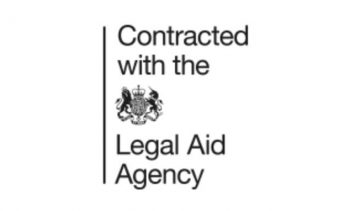In today’s globalised world, it’s increasingly common for children to have the chance to broaden their horizons by traveling or even moving abroad.
Whether it’s for a family vacation, visiting relatives overseas, or relocating due to a parent’s job opportunity. However, things become complicated, when parents are divorce or separated, as such, planning for a child’s international travel or relocation can become complex.
While both parents may view the prospect of their child exploring new countries and cultures with a mix of excitement and apprehension, it’s essential to approach these situations with a clear understanding of the legal implications and potential challenges that may arise. If both parents are in agreement about the child’s travel or relocation plans, the path forward can be relatively smooth. But when there is disagreement or uncertainty, it’s crucial to seek the guidance of a knowledgeable family law solicitor who can help navigate the complexities.
Obtaining Permission for Your Child’s International Travel: What Every Divorced or Separated Parent Needs to Know
When planning a trip abroad with your child, whether it’s a short holiday or a longer stay, it’s crucial to understand the legal requirements for obtaining permission to take them out of the UK.
Many parents, particularly those who are divorced or separated, are unaware of the necessity to secure consent from the other parent or the court before embarking on international travel with their child.
The specific requirements for obtaining permission will depend on several factors, including the existence of any Children Act Orders and who holds parental responsibility for the child.
If both parents have parental responsibility and there are no Child Arrangements Orders (formerly known as Residence Orders) or other restrictions in place, then neither parent can take the child out of the UK without the written consent of the other parent or any other party with parental responsibility. If consent is refused, an application to the court will be necessary to seek permission for the trip.
However, if one parent has a Child Arrangements Order that stipulates the child lives with them, they may take the child abroad for up to one month without the written consent of the other parent. Despite this, it’s always advisable to consult with the other parent and endeavour to reach an agreement about the travel arrangements in advance. If consent is unreasonably withheld, an application to the court may still be necessary.
In cases where the mother alone has parental responsibility and there are no Child Arrangements Orders in place, she may not strictly need permission to take the child abroad on holiday. However, it remains a matter of responsible parenting to consult and reach an agreement with the child’s father. It’s important to note that a father without parental responsibility can still apply for it and subsequently object to the child’s temporary removal from the UK.
To avoid potential misunderstandings, disputes over contact arrangements, accusations of abduction, and unnecessary court applications, it’s always best to agree upon holiday plans well in advance.
When the court is called upon to grant permission for a child to travel abroad, it will typically require detailed information about the trip, including the destination, accommodation details, dates of departure and return, flight information, and contact telephone numbers. If there are concerns that the child may not be returned, particularly if the destination is a non-Hague Convention country, additional security measures may be necessary.
It’s important to note that several countries are not signatories to the Hague Convention on the Civil Aspects of International Child Abduction, which can make it more difficult to secure the return of a child if they are not brought back to the UK as planned. Some examples of non-Hague Convention countries include: Egypt, India, Nigeria, Philippines and Zimbabwe
It’s also important to note that if grandparents or other family members wish to take a child abroad, they will need to obtain permission from both parents with parental responsibility, not just one.
While many of these issues can be addressed in the local Family Court, cases involving travel to countries with complex legal systems may require the intervention of a High Court Judge. In such instances, specific orders may need to be put in place, such as mirror orders, notarised agreements, and significant sums of money held in a bond to be released upon the child’s return. In some cases, family members, not just the person taking the child abroad, have been required to provide solemn declarations guaranteeing the child’s safe return.
When considering an application for international travel, the court will assess the risk of non-return and the potential impact on the child if they are not brought back to the UK as planned. Judges take into account the individual circumstances of each case, the age of the child, and the need for detailed protective measures if there is a significant fear of non-return.
At Adel Jibs & Co Solicitors our experienced family law solicitors are well-versed in the complexities surrounding international travel arrangements for children of divorced or separated parents. We can provide you with the guidance and support you need to navigate this process, ensuring that you are in full compliance with the law and that your child’s best interests are protected. If you require further information or assistance in obtaining permission to take your child abroad, please don’t hesitate to contact our team today.
Abduction Concerns
For families with international ties, the fear of a child not being returned from an overseas trip can be incredibly distressing. These concerns may surface before the child even departs, or they may arise when a parent and child return late from a contact visit or if it proves difficult to reach the other parent at any point. If you suspect that your child is at immediate risk of abduction, it’s crucial to act quickly and decisively to protect their safety and well-being.
One of the most effective tools in preventing international child abduction is a port alert. This legal mechanism allows authorities to intervene if an attempt is made to remove the child from the UK without proper consent. If time allows, an application should also be made to the court for a prohibited steps order, which forbids the removal of the child from the jurisdiction without notice being given to the other parent. It’s essential to move swiftly in securing these measures, as any delay could result in the child being taken out of the country, making it far more difficult to locate them and ensure their safe return.
If your child has already been taken to a country within the European Union, there are significant resources and facilities available to help track their whereabouts and secure their return before they can be moved further afield. However, it’s important to note that the longer a child remains in a foreign country, the more challenging it can become to bring them home.
International child abduction is defined as the failure to return a child after an agreed period abroad. If you have any reason to fear that your child may not be brought back to the UK after an overseas trip, it’s imperative to seek legal advice immediately. At Adel Jibs & Co Solicitors our experienced family law solicitors understand the urgency of these situations and are committed to providing swift, effective support to protect your child’s well-being.
If you suspect that your child may be at risk of abduction, gathering as much information as possible can be crucial in facilitating their safe return. This may include names, addresses, photographs, and descriptions of people and places where the child is likely to be taken. While this evidence may only be available if you have reason to believe that your child is being taken to stay with family members or friends abroad, it can be invaluable in locating your child and bringing them home safely.
At Adel Jibs we recognise the emotional toll that the threat of international child abduction can take on a parent. That’s why we’re committed to providing not only expert legal guidance but also the compassionate support you need during this challenging time.
Relocating abroad
When one parent wishes to relocate a child permanently abroad, the permission of the other parent or a Court Order is required. This process is known as a relocation application or leave to remove.
In such cases, parents must carefully consider their approach, weighing the appropriateness of opposing the application against focusing on securing favorable future contact arrangements.
Factors Considered by the Court: When assessing relocation applications, the Court takes into account various aspects of the child’s life, including:
- Educational progress
- Family and support network
- Extracurricular activities
- Impact of losing contact with the wider family
- Potential benefits offered by the parent opposing relocation
International Relocation and Contact Arrangements: If the child is to remain within a European country that has signed relevant conventions, there may be certain protections and enforceability of contact orders. Even when a child is permitted to relocate abroad, safeguards can be put in place to ensure the continuation of good contact, such as:
- Extended staying contact during school holidays
- Travel arrangements
- Use of emails and web cams
Enforcement and Legal Safeguards: Before a child leaves the jurisdiction, it is crucial to consider enforcement issues, as agreements or orders may not be valid or easily enforced abroad. To ensure compliance with arrangements, various measures can be taken:
- Notarised agreements
- Mirror orders
- Bonds
- Religious oaths
Mirror orders, which are identical orders made in the courts of the country of relocation, can be particularly advantageous for the left-behind parent, as they allow for local enforcement in the foreign state.
Seeking Legal Advice: Given the complexity of relocation cases, it is highly recommended to seek legal advice from a solicitor experienced in such matters. They can help explore all possibilities, consider potential issues, and put precautionary measures in place well in advance of the relocation.
While many children have positive experiences when traveling abroad for holidays or emigration, it is generally in the best interests of the child to maintain regular, quality contact with both parents, regardless of their place of residence. If you require further assistance or advice on this matter, please do not hesitate to contact us


